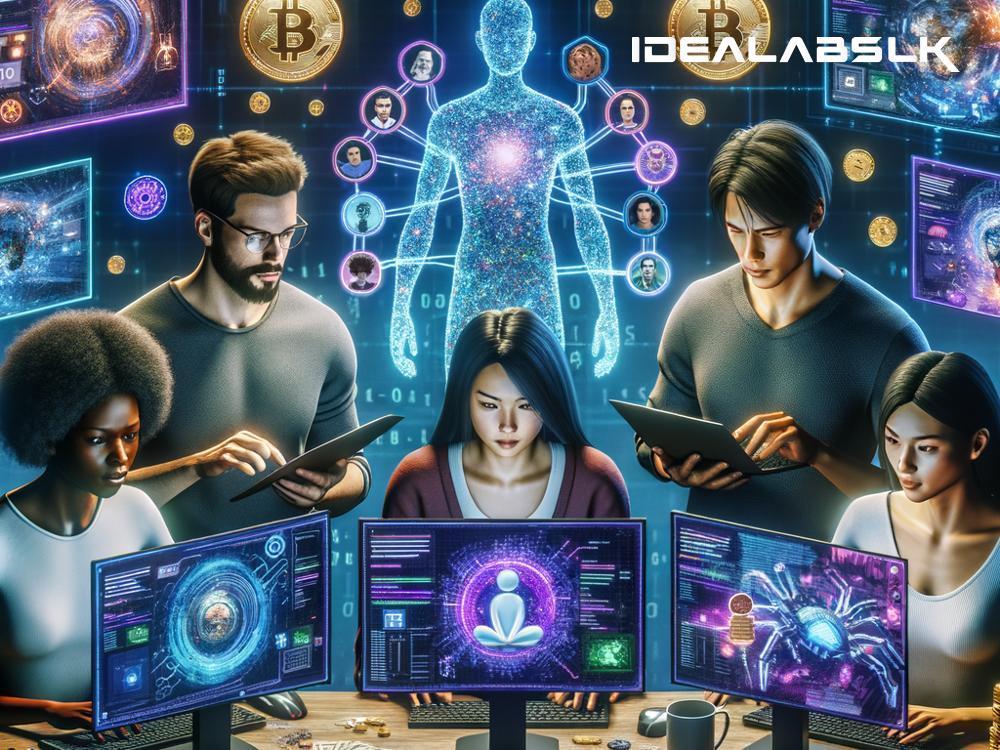As we march toward 2025, the gaming world is buzzing with anticipation for next-level experiences, particularly in how in-game economies and currency systems are set to evolve. The secret ingredient powering this transformation? Artificial Intelligence (AI). Imagine stepping into a game that not only recognizes you but also adapts its economy to suit your play style and preferences. It sounds like something out of a science fiction novel, but it's a reality that’s just around the corner. Let’s explore how AI will personalize in-game economies and currency systems in 2025, making each player's experience as unique as their fingerprints.
Crafting Unique Experiences
The core idea is simple: AI will analyze how you play games – whether you’re the bold adventurer who leaps before they look or the calculated strategist who plans five moves ahead. By understanding your habits and preferences, AI can tweak the game’s economy to better fit your style. If you enjoy the thrill of high-risk, high-reward scenarios, the game might present you with rarer, more valuable in-game items, albeit guarded by tougher challenges. Conversely, if you're a casual player, the game might adjust to offer you smaller, more consistent rewards to keep you engaged without overwhelming you.
Dynamic Pricing in Marketplaces
One of the most intriguing aspects is how AI could revamp in-game marketplaces. Picture a scenario where the price of goods and items in a game's marketplace fluctuates based on supply, demand, and even your personal economy. If an item is flying off the virtual shelves, its price might go up, but only for players who can afford the hike, ensuring the game remains balanced. Alternatively, if you've saved up in-game currency during a "recession," you might find items priced more affordably, allowing your virtual savings to stretch further.
Tailored Rewards and Incentives
Reward systems are likely to get a facelift as well. Currently, most games offer a one-size-fits-all approach to rewards. By 2025, AI could personalize rewards to keep you hooked. For example, if the system notices you're two steps away from completing a rare item set, it might nudge you by dropping hints or necessary items on your next quest. Or if you’ve been struggling with a particular challenge, it could offer tailored power-ups to help you overcome that hurdle, ensuring a smoother and more enjoyable gaming experience.
Economic Events Based on Player Activity
Imagine logging into your favorite game to find that an in-game festival or event has kicked off, celebrating a milestone you've achieved or contributing to a cause you care about. AI could organize events based on the collective activities of its player base. If a significant number of players are nearing the end of a storyline, the game might launch a celebratory event to mark the occasion, offering exclusive items or bonuses as rewards.
Real World Value and Blockchain Integration
The convergence of AI with blockchain technology could redefine the value of in-game currencies and items, allowing them to carry real-world value. With AI overseeing the in-game economy, it could ensure fair and transparent transactions, potentially allowing players to trade in-game assets like stocks in a stock market. This could open up new revenue streams for avid gamers and even pave the way for professional "game economists" or strategists who specialize in navigating these virtual economies.
The Path Ahead
While the prospects are thrilling, integrating AI into in-game economies without disrupting the balance or fairness poses a considerable challenge. Developers will need to tread carefully, ensuring that these personalizations enhance the gaming experience without giving undue advantages or detracting from the game’s challenge and allure.
In conclusion, by 2025, AI-driven personalization in in-game economies and currency systems promises to make gaming experiences more immersive, dynamic, and tailored than ever before. As AI technology continues to evolve, the line between virtual economies and real-world financial systems could blur, offering gamers not only entertainment but potentially viable economic opportunities. The fusion of gaming with AI is not just about changing how we play games; it's about transforming what games mean to us and how they fit into our lives. Prepare to dive into a world where every game you play knows just what makes you tick, offering a customized journey that’s as unique as you are.

